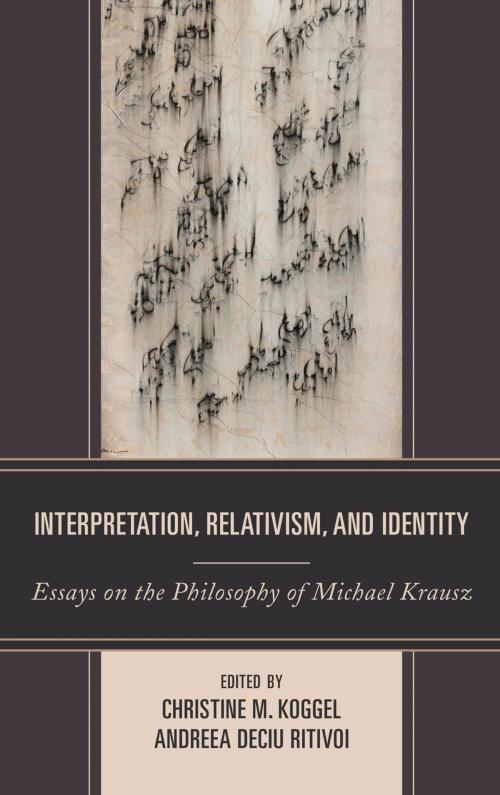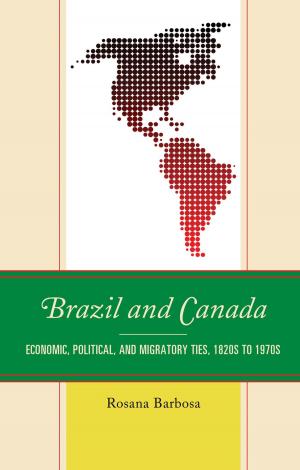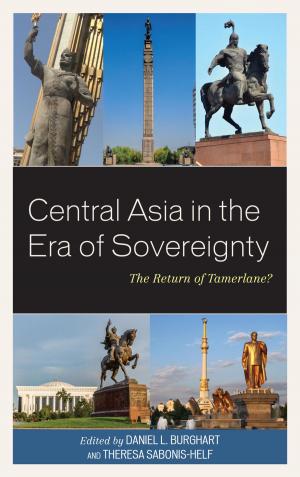Interpretation, Relativism, and Identity
Essays on the Philosophy of Michael Krausz
Fiction & Literature, Literary Theory & Criticism, Nonfiction, Religion & Spirituality, Philosophy| Author: | Bernard Harrison, Christine M. Koggel, Michael Krausz, Andreea Ritivoi, Paul Snowdon, Mary Bittner Wiseman, David B. Wong, Erika | ISBN: | 9781498554756 |
| Publisher: | Lexington Books | Publication: | January 3, 2018 |
| Imprint: | Lexington Books | Language: | English |
| Author: | Bernard Harrison, Christine M. Koggel, Michael Krausz, Andreea Ritivoi, Paul Snowdon, Mary Bittner Wiseman, David B. Wong, Erika |
| ISBN: | 9781498554756 |
| Publisher: | Lexington Books |
| Publication: | January 3, 2018 |
| Imprint: | Lexington Books |
| Language: | English |
Interpretation, Relativism, and Identity: Essays on the Philosophy of Michael Krausz addresses three major philosophical themes: interpretation, relativism, and identity. It does so by focusing on Krausz’s distinctive exploration of the relationship between interpretation and ontology, the varieties of relativism, and the interpretive dimension of identity construction.
Throughout the years, Krausz has participated in exchanges between people who embrace opposing views about reality, human selves, and the attachments or detachments between them. In these exchanges, life orientations are at stake as much as conceptual distinctions. These exchanges are reflected in a discussion among renowned scholars in philosophy and literary studies not only on Krausz’s work but also on the significant philosophical implications of key issues for how we understand the human condition, our commitments and values, the meaning of religious and artistic texts, and the way we make sense of our lives and ourselves. The contributors to this volume engage with all of these concerns in their dialogue with Krausz and with one another. The range and versatility of Krausz’s conceptual apparatus can benefit students and scholars with interests in interpretative endeavors, different ontological commitments, and various conceptual priorities and preferences.
Interpretation, Relativism, and Identity: Essays on the Philosophy of Michael Krausz addresses three major philosophical themes: interpretation, relativism, and identity. It does so by focusing on Krausz’s distinctive exploration of the relationship between interpretation and ontology, the varieties of relativism, and the interpretive dimension of identity construction.
Throughout the years, Krausz has participated in exchanges between people who embrace opposing views about reality, human selves, and the attachments or detachments between them. In these exchanges, life orientations are at stake as much as conceptual distinctions. These exchanges are reflected in a discussion among renowned scholars in philosophy and literary studies not only on Krausz’s work but also on the significant philosophical implications of key issues for how we understand the human condition, our commitments and values, the meaning of religious and artistic texts, and the way we make sense of our lives and ourselves. The contributors to this volume engage with all of these concerns in their dialogue with Krausz and with one another. The range and versatility of Krausz’s conceptual apparatus can benefit students and scholars with interests in interpretative endeavors, different ontological commitments, and various conceptual priorities and preferences.















